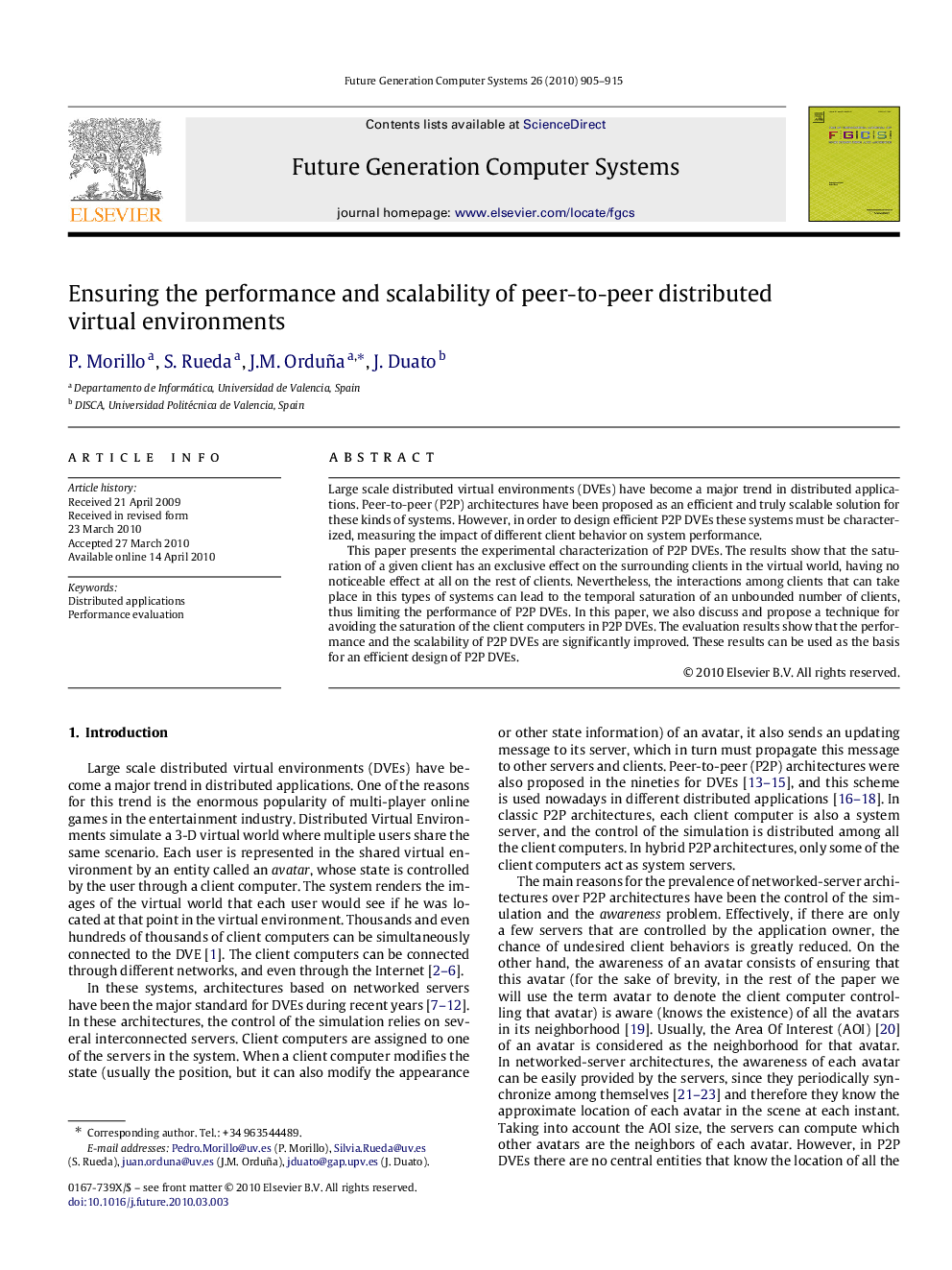| Article ID | Journal | Published Year | Pages | File Type |
|---|---|---|---|---|
| 425146 | Future Generation Computer Systems | 2010 | 11 Pages |
Large scale distributed virtual environments (DVEs) have become a major trend in distributed applications. Peer-to-peer (P2P) architectures have been proposed as an efficient and truly scalable solution for these kinds of systems. However, in order to design efficient P2P DVEs these systems must be characterized, measuring the impact of different client behavior on system performance.This paper presents the experimental characterization of P2P DVEs. The results show that the saturation of a given client has an exclusive effect on the surrounding clients in the virtual world, having no noticeable effect at all on the rest of clients. Nevertheless, the interactions among clients that can take place in this types of systems can lead to the temporal saturation of an unbounded number of clients, thus limiting the performance of P2P DVEs. In this paper, we also discuss and propose a technique for avoiding the saturation of the client computers in P2P DVEs. The evaluation results show that the performance and the scalability of P2P DVEs are significantly improved. These results can be used as the basis for an efficient design of P2P DVEs.
